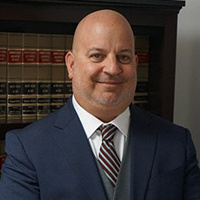Hatfield Divorce & Family Law Lawyer, Pennsylvania
Sponsored Law Firm
-
 x
x

Click For More Info:
-
Ciccarelli Law Offices
Numerous Office Locations Available» view mapDivorce and Family Law Success is our Mission
You gain the resources of a team with 100 years of combined experience fighting for their clients throughout Pennsylvania.
888-240-0896
Vincent D. Margiotti
✓ VERIFIEDAccident & Injury, Criminal, Divorce & Family Law, Employment, Immigration
Following law school Mr. Margiotti practiced exclusively in the area of personal injury and accident law with a major Philadelphia law firm. After se... (more)
Liam John Duffy
✓ VERIFIEDDivorce & Family Law, Landlord-Tenant, DUI-DWI, Estate, Wills & Probate
Liam J. Duffy practices in the areas of Divorce, Support, Child Custody, Equitable Distribution, Protection from Abuse, Civil Litigation, Business Law... (more)
Matthew F. Fox
Divorce & Family Law, Divorce, Child Custody, Personal Injury
Status: In Good Standing
FREE CONSULTATION
CONTACTFREE CONSULTATION
CONTACTPatrick J. McMenamin
Litigation, Divorce & Family Law, Criminal, Accident & Injury
Status: In Good Standing Licensed: 34 Years
FREE CONSULTATION
CONTACTAmy R. Stern
Family Law, Divorce & Family Law, Personal Injury
Status: In Good Standing Licensed: 35 Years
William E. Moore
Litigation, Estate Planning, Workers' Compensation, Family Law
Status: In Good Standing Licensed: 40 Years
 Lee Ciccarelli West Chester, PA
Lee Ciccarelli West Chester, PA AboutCiccarelli Law Offices
AboutCiccarelli Law Offices Practice AreasSpecializations
Practice AreasSpecializations


